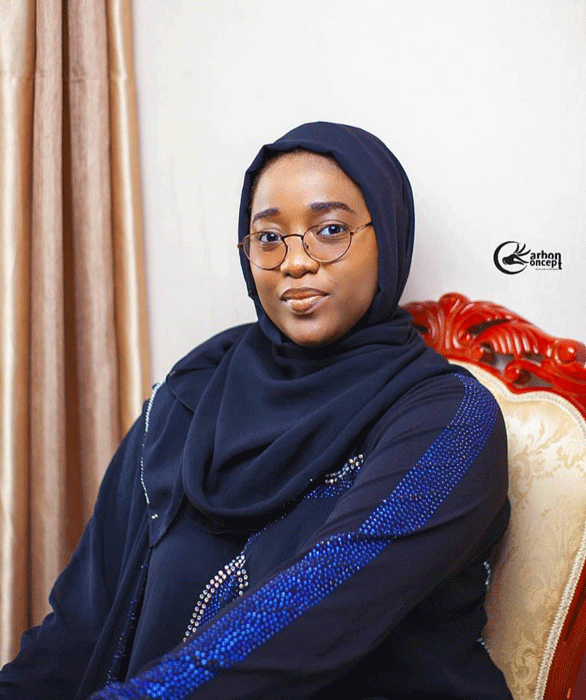“The Women in my Book are Self-Trafficked” INTERVIEW WITH CHIKA UNIGWE
By Halima Katun (Literature Voices)
Chika Nina Unigwe (born 12 June 1974) is a Nigerian-born Igbo author who writes in English and Dutch. In April 2014 she was selected for the Hay Festival’s Africa39 list of 39 Sub-Saharan African writers aged under 40 with potential and talent to define future trends in African literature. She has a Ph.D in Literature (2004) from the University of Leiden in the Netherlands. Her debut novel, De Feniks, was published in 2005 by Meulenhoff and Manteau (of Amsterdam and Antwerp, respectively) and was shortlisted for the Vrouw en Kultuur debuutprijs for the best first novel by a female writer. She is also the author of two children’s books published by Macmillan, London. She has published short fiction in several anthologies, journals and magazines, including Wasafiri (University of London), Moving Worlds (University of Leeds), Per Contra, Voices of the University of Wisconsin and Okike of the University of Nigeria. She won the 2003 BBC Short Story Competition and a Commonwealth Short Story Competition award. In 2004, she was shortlisted for the Caine Prize for African Writing. In the same year, her short story made the top 10 of the Million Writers Award for best online fiction. In 2005, she won third prize in the Equiano Fiction Contest. Previously based in Belgium, she now lives in the United States.
Halima: Your novel, ‘On Black Sisters Street’ is a story of the many injustices that we are dealt as women not just in Nigeria but all over the world. What prompted you to write about this?
Unigwe: My writing is propelled mostly by curiosity. I write about things, events, issues, I am curious about. Curiosity and passion, they are what fuel my writing
Halima: Each of the women had experiences that were both unique in their grimness and horrifying in nature. Each of these experiences closely mirrors the realities of early 21st century Nigeria like the prevailing societal vices of the day, as well as a number of the more horrifying atrocities committed by people on a daily basis, and how they affect the lives of four women. Do you see a way out of this troubling situation in the nearest future?
Unigwe: Nothing changes unless people are willing to demand and fight for the change. The world will never be perfect because human beings are not perfect. What we strive for isn’t a perfect world but a world where everyone has equal recourse to justice; where both men and women have equal opportunities; where connections and family name won’t grant you access that is close to others.
Halima: The four girls in normal circumstances would never have crossed paths. They all came from different worlds but became united in that dingy apartment in Antwerp. Would you ascribe their lot to a shortage of luck; a mistake they or their parents probably made or was it simply destiny?
Unigwe: They are adults; their parents did not make the decisions for them. They migrate from Nigeria because they feel that they have very few choices in Nigeria. Their poverty and lack of job opportunities in Nigeria: are they man-made or are they just unlucky? When young graduates in Nigeria, for example, can’t find jobs, is it destiny? Ill-luck? Or what?
Halima: Women and child-trafficking is something that a lot of people only get to learn about on the news or in stories such as yours. It is chilling to think that it’s not just stories but actually the reality of a lot of people. How can we curb this menace when most of these women go into it willingly?
Unigwe: The women in my book are self-trafficked (for want of a better word) because there was nothing for them in Nigeria. If Sisi had found a job, for instance, she would have stayed in Lagos
Halima: You have lived in Nigeria, then Belgium and currently reside in the United States of America; can you compare the living standards of these three countries and relate it to the main theme of your book which is prostitution?
Unigwe: I don’t know how I can combine the living standards in 3 different countries to prostitution. I am afraid I don’t see the correlation
Halima: I sense a feminist vibe from you. So, what do you have to say about the role of feminism in contemporary Nigerian society? The fact that women are no longer silent and are making their voices heard is highly commendable but, can you comment on how feminism is being viewed lately especially by Nigerians who are set in their ways of ‘men lead and women should unarguably follow.’
Unigwe: Feminism in Nigeria is not new. You know of the 1929 Aba Women’s Rebellion? Igbo women led the fight against unfair taxation and introduction of new local courts (and imposition of warrant chiefs) by the colonial administrators. You don’t think those women were feminists? Have you heard of Funmilayo Ransome Kuti? Queen Osunju? Queen Amina, the warrior queen? Queen Karibasa who took the ivory tusk from her dying father and literally crowned herself Queen of Bonny, at a time when only men ruled? She is the only female ruler in Bonny history. Feminism is not a novel concept, and anyone who thinks that men and women shouldn’t have equal rights is the one who is ignorant and backwards.
Halima: Your book ‘On Black Sisters Street’ was published in 2009. It’s been eleven whole years and yet it still hasn’t stopped being relevant. If you could go back in time to change something about the book, what would it be and why? Had the book helped in creating the awareness you sought? Is prostitution increasing or decreasing?
Unigwe: No, I wouldn’t change anything
Halima: The character of Dele was the common denominator in the lives of the girls. It was through him all the girls came to be in Antwerp. Exploiting them in their desperation for greener pastures to the extent of lying to some and making them believe they will be employed into honest jobs. Dele could have easily helped those girls with his money and resources if he wanted to. But his selfishness and greed did not permit this. What do you have to say about the likes of Dele?
Unigwe: Why is the world so desperate today? What do you think can slow down human beings in their quest for personal greed and selfishness? You are asking me questions beyond my pay-grade. Why are human beings desperate? It’s because it’s in their nature. What can curb greed and selfishness? Everyone has to answer that for themselves.
Halima: Efe’s first time was at sixteen and with a man thrice her age who took advantage of her naivety and poverty. Parental neglect was also a key factor in this case, so please comment on the importance of parental guidance and mental health as relates to Efe’s father. What could be responsible for the escalation of mental health issues in communities, today?
Unigwe: I think that this question is for a mental health expert, I am not really qualified to speak on it
Halima: “It was the place to be when your dreams died, the place of miracles: a place where dead dreams resurrected and soared and allowed you to catch them and live them. She was ready finally to embrace the prediction of an enviable future that had dogged her every day since she was born; its omniscient presence like an eye, always following her. She was eager to begin.” These were Sisi’s thoughts on her arrival in Belgium. The irony was not lost on us as Sisi was never to realize her dreams and would die at the brink of a promise of happiness and security. So, I ask you, what did her death symbolize? Why did she have to die? I’m asking this because it just seemed so unfair. Is life this useless and disappointing amidst plenty?
Unigwe: I never prescribe how readers should read a book. I’m going to throw that question back at you. What do you think her death symbolize? Is life sometimes unfair? Of course, it is. We all have crosses to carry; some people appear to be heavier than others.
Halima: Perhaps Sisi’s death was what united the ladies and finally prompted them to allow us a glimpse into their stories. So, in mourning they sought out each other and found solace in the knowledge that each of them came from homes, though each unique in its own way. What does friendship signify for you? What is its place in stabilising the world that is increasingly going up in flames? I am talking about communal and corporate entities of life.
Unigwe: No man is an island and all that. We all need friends; we all need family. Sometimes, friends are the only family some people have.
Halima: Joyce was a refugee whose family was killed before her. She was also brutally raped by the same soldiers. She later fell in love with another soldier, Polycarp, who brought her back to Nigeria. Polycarp later betrayed her and sent her to Antwerp on the pretext that she would be a nanny for little children. Address the judgement that people mete out on call girls without hearing their side of the story.
Unigwe: People judge others every single day without hearing their stories. People judge others even after hearing their stories too. It’s the way of the world
Halima: So many themes were explored in the book ranging from betrayal, love, family, rape, feminism, anger etc. What inspires you to write with such emotion? What is your muse?
Unigwe: Curiosity and passion
Halima: Thank You for your time
Unigwe: You’re Welcome
Halima Ahmad Katun has a Bachelor of Law Degree (LL. B) from Ahmadu Bello University, Zaria where she was an executive member of the Creative Writers’ Club, Kongo Campus. She also served as a Public Relations Officer, Secretary and finally Head of Drama and Publicity in the institution. Her work was featured in an Anthology on sexual violence: “My Name Is Sorrow”, published by the Creative Writers’ Club, Kongo. She is from Niger State and a member of the Hill-Top Creative Arts Foundation, Minna. She holds strong views on human rights, feminism, gender inequality and violence. She loves to read more than she loves to write. Email- harleemerhahmad@gmail.com, Instagram – haleemah_katun, Facebook – Haleemah Ahmad Katun, Twitter- haleemerh_katun, WordPress – haleemerhkatun.wordpress.com, LinkedIn- Halima Ahmad.











Leave a Review